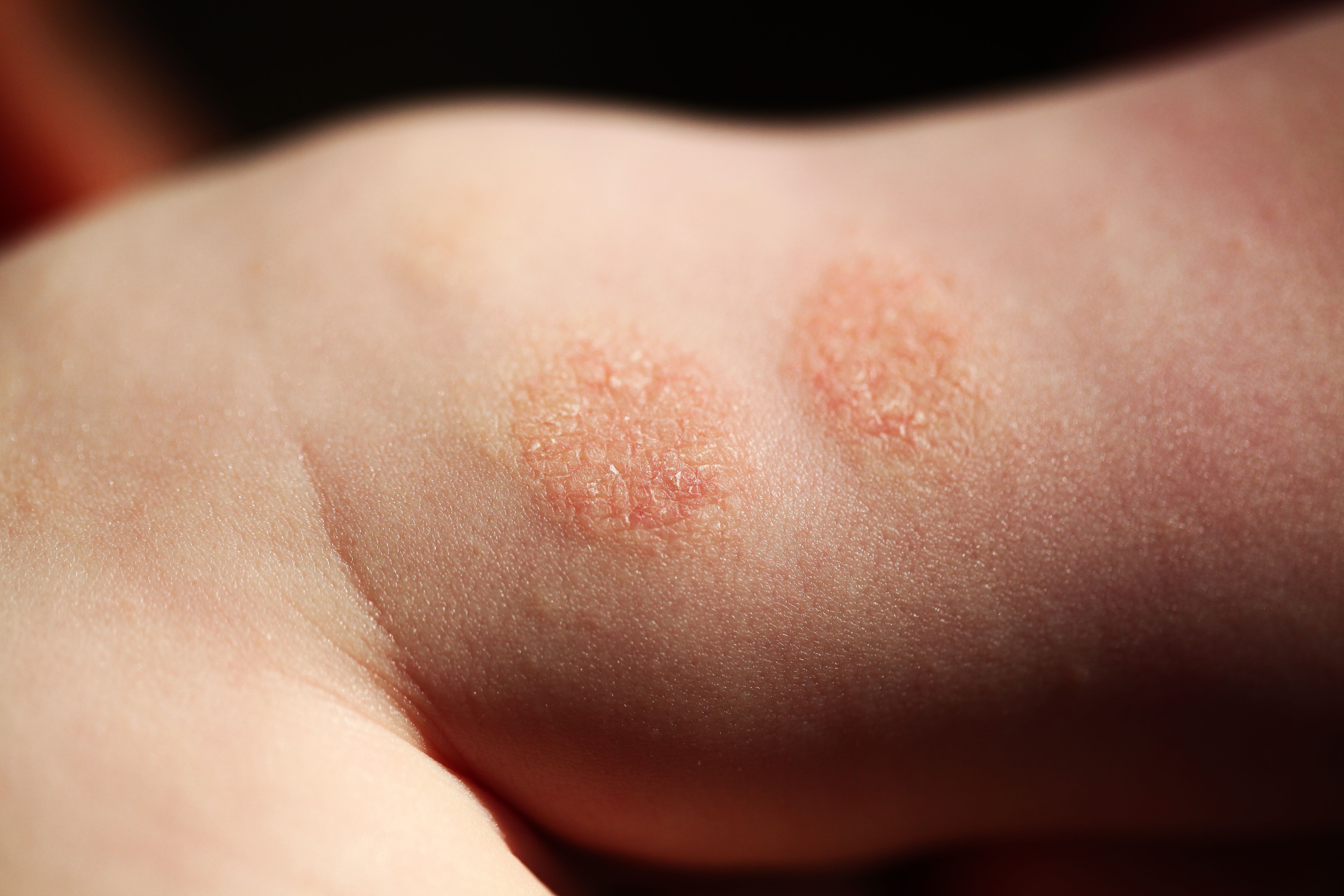- Case-Based Roundtable
- General Dermatology
- Eczema
- Chronic Hand Eczema
- Alopecia
- Aesthetics
- Vitiligo
- COVID-19
- Actinic Keratosis
- Precision Medicine and Biologics
- Rare Disease
- Wound Care
- Rosacea
- Psoriasis
- Psoriatic Arthritis
- Atopic Dermatitis
- Melasma
- NP and PA
- Skin Cancer
- Hidradenitis Suppurativa
- Drug Watch
- Pigmentary Disorders
- Acne
- Pediatric Dermatology
- Practice Management
- Prurigo Nodularis
- Buy-and-Bill
News
Article
Despite Maternal Mental Health and Child Atopic Disease Association, This Link Is Not Attributable to Child Mental Health Disorders
Author(s):
Maternal mental health conditions are associated with the majority of atopic diseases, according to a study.
Despite an association between maternal mental health and atopic diseases in children, a recent study published in Pediatric Allergy and Immunology found that this link is not attributable to mental health disorders in children.1
Study authors Brew et al noted that recent research suggests a potential link between maternal mental health disorders and the development of atopic diseases such as asthma, atopic dermatitis, and allergic rhinitis in children.2 However, the mechanisms underlying these associations remain unclear.
Despite this, maternal mental health disorders have been consistently linked to psychological and psychiatric issues in children.3 Building upon existing evidence, the study explored the hypothesis that maternal mental health disorders may serve as a common link connecting child atopic diseases and child mental health disorders.
The study employed a longitudinal design and utilized data from the Child and Adolescent Twin Study in Sweden (CATSS), a part of the Swedish Twin Registry. CATSS included twins born between January 1, 2002, and December 31, 2010.
Researches invited parents to participate in interviews about their children's health on their twins' 9th birthday. After excluding cases where children had died or emigrated before age 9, or where parents were unable to provide questionnaire responses due to disability or language barriers, the final sample included 15,092 twins with complete information on all necessary variables.
Data from CATSS was linked with information from several national registers, including the National Patient Register (NPR), the Swedish Prescribed Drug Register (SPDR), the Medical Birth Register, and the Longitudinal integration database for health insurance and labor market studies.
Maternal mental health disorders were defined based on diagnoses and/or prescribed medication for depressive, anxiety, or stress disorders recorded in the NPR or SPDR from the time of the child's conception to age 3 years. Childhood atopic diseases, including asthma, atopic dermatitis, and allergic rhinitis, were assessed through parent-reported questionnaires based on the International Study of Asthma and Allergies in Childhood.
Child mental health disorders, specifically depression or anxiety, were identified using validated screening questionnaires completed by parents during CATSS interviews. The Screen for Child Anxiety Related Emotional Disorders and Shortened Mood and Feelings questionnaires were utilized to assess anxiety and depression symptoms, respectively.
Mothers with mental health disorders, comprising 12.4% of the population, were more likely to have asthma and smoke during pregnancy compared to the overall cohort. Their children were slightly more likely to be born earlier and smaller.
Among all twins, 8.8% had parent-reported asthma, 7.6% had parent-reported atopic dermatitis, and 6.6% had parent-reported allergic rhinitis.
Adjusted relative risks (aRR) indicated a significant association between maternal mental health disorders and child mental health disorders, with an aRR of 1.73. Comorbidity between child mental health disorders and atopic diseases ranged from an aRR of 1.06 to 1.29, with parent-reported childhood asthma showing the strongest association.
A total effect analysis demonstrated statistically significant associations between maternal mental health disorders and offspring asthma, atopic dermatitis, and allergic rhinitis. Three-way decomposition analysis revealed minimal evidence for mediation or interaction between maternal and child mental health disorders in explaining the association with child atopic diseases.
Potential limitations of the study, as noted by study authors, include lower comorbid associations than expected, an inability to ensure the absence of reverse causation, potential generalizability of a singleton population, and the potential of researchers' definition of material mental health disorders to miss some cases due to increased specificity.
"This study, utilizing a large child twin population, has found little evidence for the hypotheses that mediation or interaction with child mental health disorders explains the association between maternal perinatal mental health disorders and child atopic disease," according to Brew et al. "Child mental health disorders were not shown to explain the association between maternal psychological mental health disorders and child atopic diseases. Other hypotheses such as direct immunological and biochemical pathways should be pursued to explain this phenomenon."
References
- Brew BK, Gong T, Ohlin E, et al. Maternal mental health disorders and offspring asthma and allergic diseases: The role of child mental health. Pediatr Allergy Immunol. February 17, 2024. Accessed February 23, 2024. https://doi.org/10.1111/pai.14085
- Flanigan C, Sheikh A, DunnGalvin A, Brew BK, Almqvist C, Nwaru BI. Prenatal maternal psychosocial stress and offspring's asthma and allergic disease: a systematic review and meta-analysis. Clin Exp Allergy. 2018; 48(4): 403-414. Accessed February 23, 2024. doi:10.1111/cea.13091
- Rogers A, Obst S, Teague SJ, et al. Association between maternal perinatal depression and anxiety and child and adolescent development: a meta-analysis. JAMA Pediatr. 2020; 174(11): 1082-1092. Accessed February 23, 2024. doi:10.1001/jamapediatrics.2020.2910
Newsletter
Like what you’re reading? Subscribe to Dermatology Times for weekly updates on therapies, innovations, and real-world practice tips.







